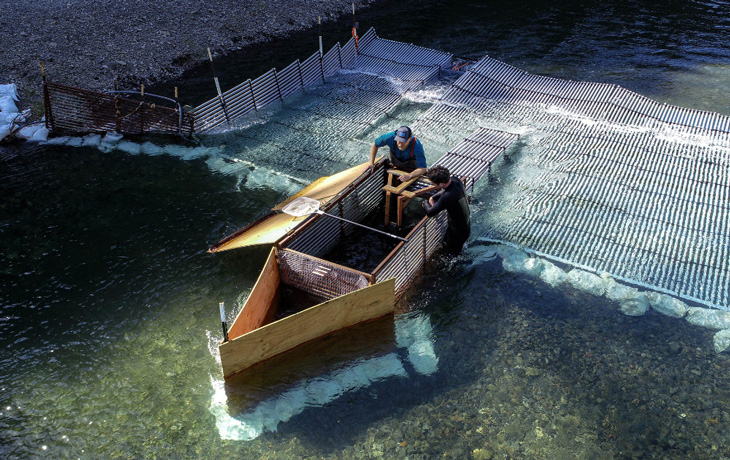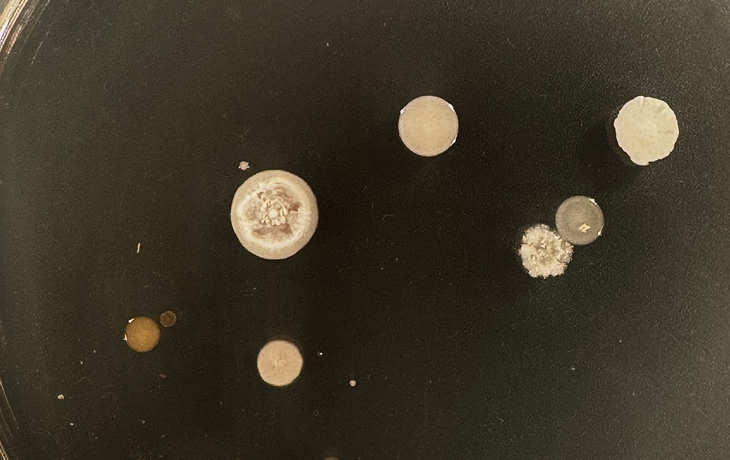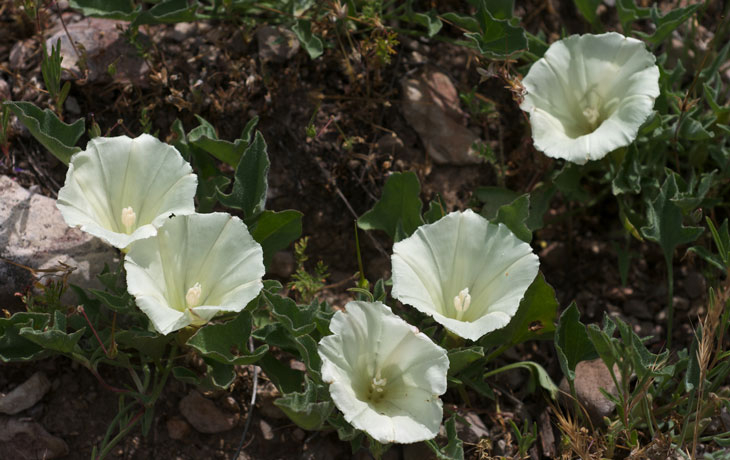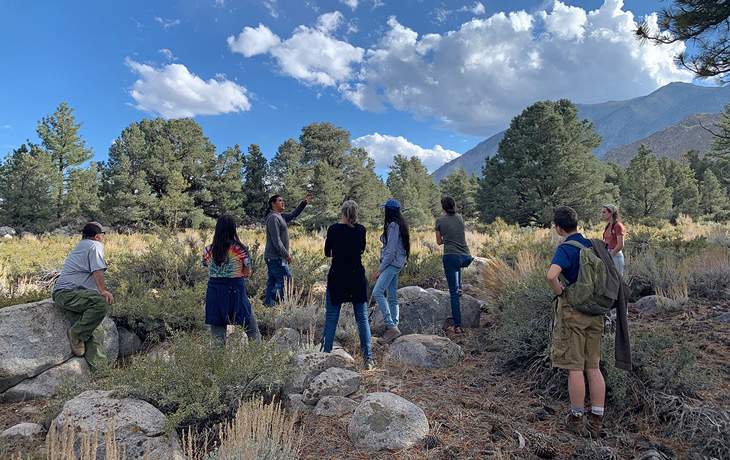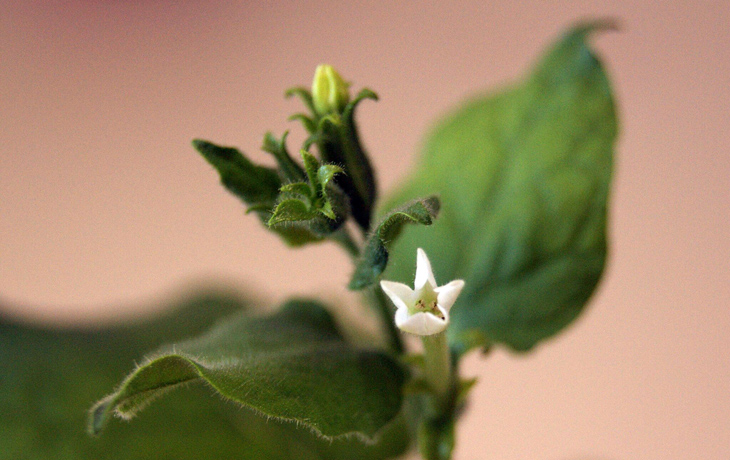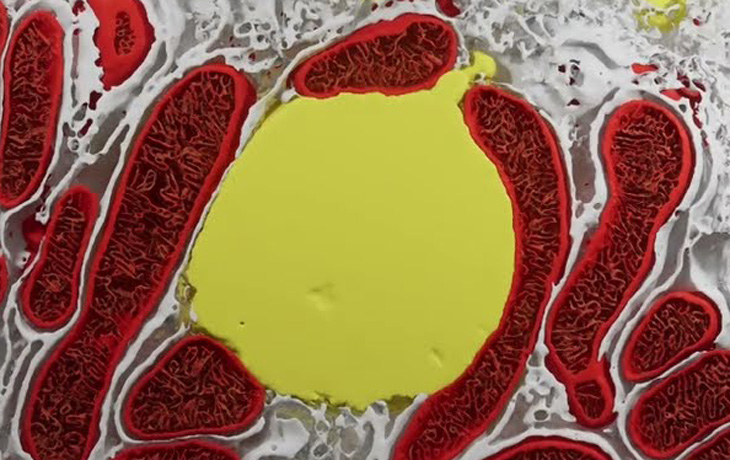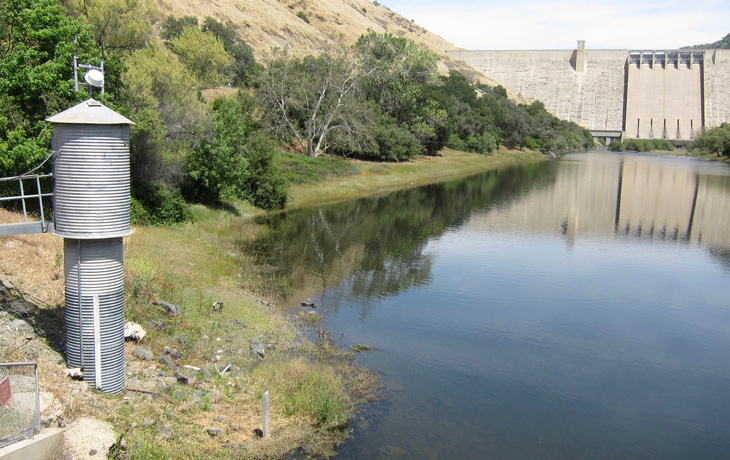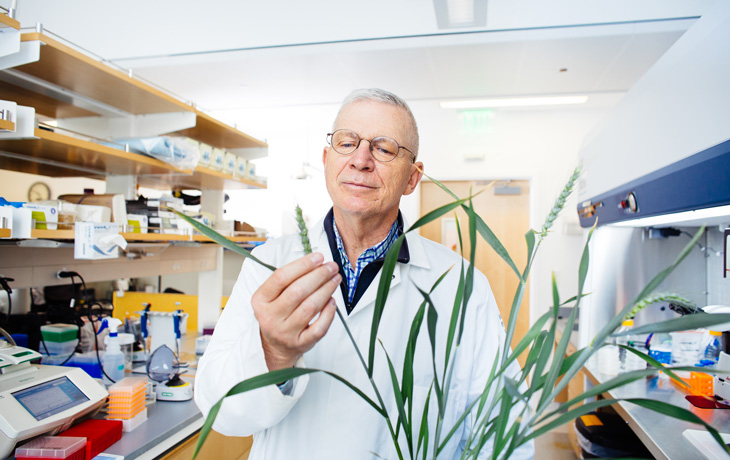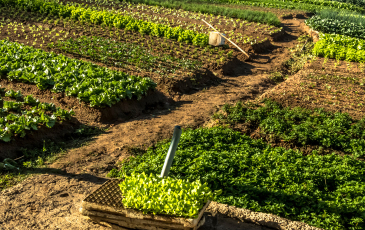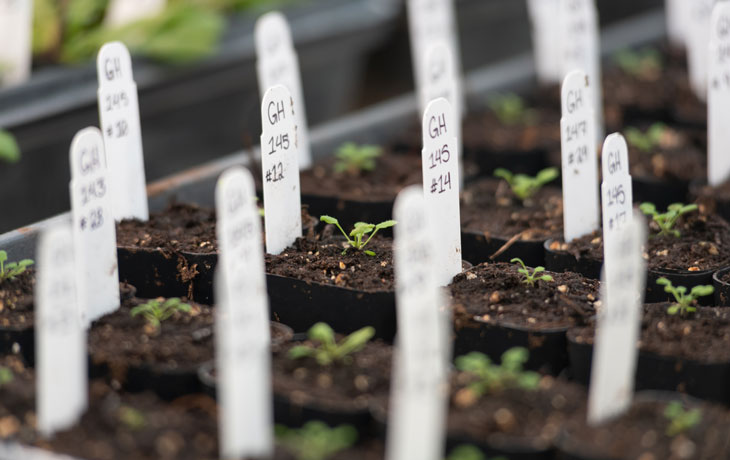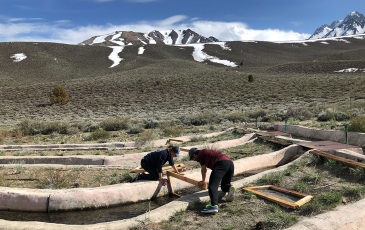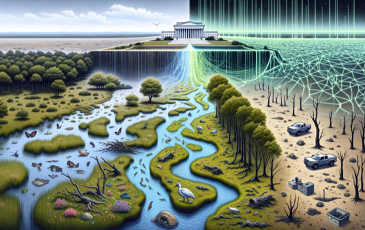A new perspective paper co-authored by UC Berkeley researchers highlights the complex interactions of climate and non-climate stressors on California’s freshwater ecosystems.
Manipulating microbial communities with vitamins
A pair of new papers from the Taga lab furthers scientific understanding of microbial interactions in a California grassland soil.
How urban raccoons adapt to new foraging challenges
A new study led by postdoctoral researcher Lauren Stanton documents how raccoons use innovative problem-solving skills when foraging for food.
A new tool for climate resilience in California
Adjunct professor Patrick Gonzalez and other UC Berkeley affiliates have launched the Seeds of Change spatial tool to help parks and protected areas in California select climate-resilient plant seeds.
Improving the resilience of California’s pinyon-juniper woodlands
ESPM professor Miranda Redmond is leading a collaborative research project aimed at expanding Indigenous forest stewardship of the culturally important woodland ecosystems.
Unveiling the hidden culprits of air pollution in Los Angeles
A new study led by UC Berkeley researchers found that trees and plants play an important role in the formation of summertime air pollution in the region.
Study shows PFAS threat to drinking water in rural, predominantly Latinx communities
A study led by ESPM and ERG researchers finds that public wells in communities of color might be disproportionately contaminated with harmful "forever chemicals."
Can engineered plants help make baby formula as nutritious as breast milk?
New research from the lab of PMB professor Patrick Shih shows that plants may hold the secret to improving commercial infant formula.
Historical redlining linked to lower urban wildlife biodiversity in California
Historically redlined neighborhoods in four of California’s largest cities have significantly lower levels of native and non-native wildlife biodiversity compared to their greenlined counterparts.
PMB researchers use CRISPR/Cas9 to alter photosynthesis for the first time
A RIPE team led by PMB professor Krishna Niyogi and alum Dhruv Patel-Tupper, PhD '22, used CRISPR/Cas9 to increase gene expression in rice by changing its upstream regulatory DNA.
New insights into metabolic adaptation to nutritional changes
A new study by the lab of NST professor Ana Paula Arruda details how liver cells reorganize their internal membrane structures to adapt to changes in nutrient availability.
Water in California’s streams is poorly monitored, impeding effective management
Berkeley researchers identify gaps in California’s stream monitoring network and propose efficient remedies to improve water management
A half-century of plant immunity breakthroughs
Professor Emerit Brian Staskawicz and co-authors break down the last half-century of breakthroughs in the study of plant immunity in the 50th-anniversary issue of Cell.
Continuing Berkeley’s legacy in forest products
Cooperative Extension professors Daniel Sanchez and Paul Mayencourt build on the University of California Forest Products Lab’s 50-year history through their research on innovative, low-carbon wood products.
A win-win for people and the environment
A Science study co-authored by Kathryn De Master and Adrian Lu, PhD '20, found evidence that diversified farming practices maintain soil health and on-farm biodiversity while also increasing crop yields, food security, and human wellbeing.
Advancing scientific understanding of calcium signaling
Recent studies led by Plant and Microbial Biology professor Sheng Luan shed light on the role calcium plays in plant immunity and defense.
Only China is on track to meet global renewable energy commitments
New analysis from University of California, Berkeley researchers finds that China is the only nation on track to triple its renewable capacity by 2030, a key goal for limiting global warming to 1.5 degrees Celsius.
Insects, algae and our changing climate
A new PNAS study led by ESPM professor Albert Ruhi and grad student Kyle Leathers suggests that drought may reshape California's mountain waterways—and the ecosystems that depend on them—by the end of the century.
New study shows chronic jet lag increases risk of liver cancer
Mice spontaneously developed liver cancer under conditions that mimicked the chronic jet lag associated with many weeks of round-trip overseas flights.
White House rule dramatically deregulated wetlands, streams, and drinking water
New research co-authored by ARE's Joe Shapiro and Simon Greenhill uses machine learning to reveal which streams and wetlands are protected—or not—by changing Clean Water Act regulations.


